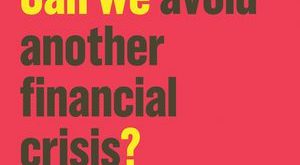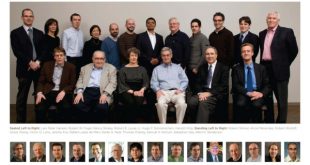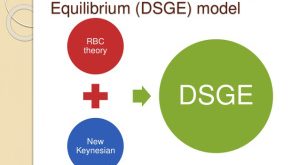Why we can’t avoid another financial crisis If there’s anything the last decade has shown us, it is that mainstream economists have gone astray in their tool shed. Mainstream neoclassical economics has contributed to causing today’s economic crisis rather than to solving it. So we are in dire need of rethinking economics. An important building block in working out a new — more realist and relevant — economic theory, is Hyman Minsky’s thoughts on the...
Read More »Don’t trust summary statistics alone
Don’t trust summary statistics alone When teaching statistics and econometrics yours truly always stress the importance of data visualization. The thirteen datasets shown above is a great illustration of why one should always plot data. They all have the same summary statistics — mean, standard deviation, correlation coefficient — but some are dinosaurs and others are stars … Conclusion: never trust summary statistics alone! Advertisements...
Read More »What happens when a small and dangerous sect captures the teaching of economics
What happens when a small and dangerous sect captures the teaching of economics The fallacy of composition basically consists of the false belief that the whole is nothing but the sum of its parts. In the society and in the economy this is arguably not the case. An adequate analysis of society and economy a fortiori can’t proceed by just adding up the acts and decisions of individuals. The whole is more than a sum of parts. This fact shows up when...
Read More »Take me back to the rivers of belief
Take me back to the rivers of belief [embedded content] Advertisements
Read More »The tragedy of pseudoscientific and self-defeatingly arrogant economics
The tragedy of pseudoscientific and self-defeatingly arrogant economics The problem of any branch of knowledge is to systematize a set of particular observations in a more coherent form, called hypothesis or ‘theory.’ Two problems must be resolved by those attempting to develop theory: (1) finding agreement on what has been observed; (2) finding agreement on how to systematize those observations. In economics, there would be more agreement on the second...
Read More »Axiomatic variation is not equivalent to genuine plurality
Axiomatic variation is not equivalent to genuine plurality The DSGE mainstream – which is made up of new classical macroeconomics and neo-Keynesianism – is unanimously based on the core assumptions that characterize the paradigm of social exchange theory. These are rationality, ergodicity and substitutionality, the exclusive acceptance of a formal mathematical-deductive, positivist reductionism. After the ‘empirical turn’ of the last two or three decades,...
Read More »The spectacular failure of DSGE models
The spectacular failure of DSGE models In most aspects of their lives humans must plan forwards. They take decisions today that affect their future in complex interactions with the decisions of others. When taking such decisions, the available information is only ever a subset of the universe of past and present information, as no individual or group of individuals can be aware of all the relevant information. Hence, views or expectations about the future,...
Read More »Unforgettable
[embedded content] Advertisements
Read More »Why Cramer’s rule works (student stuff)
Why Cramer’s rule works (student stuff) [embedded content] Advertisements
Read More »Nu lyfter vi från marken
Nu lyfter vi från marken [embedded content] Freddie Wadling (1951-2016) Advertisements
Read More » Lars P. Syll
Lars P. Syll






